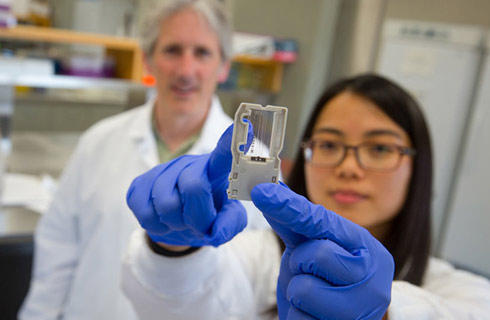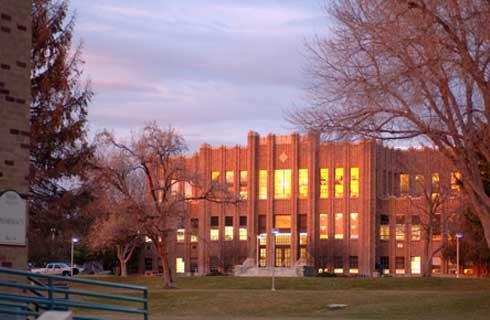Master of Science in Astrophysical Sciences and Technology

学历文凭
Masters Degree

专业院系
天体物理学

开学时间

课程时长

课程学费

国际学生入学条件
Applicants must
- Hold a baccalaureate degree (or equivalent) from an accredited university or college in the physical sciences, mathematics, computer science, or engineering.
- Have a minimum cumulative GPA of 3.2 (or equivalent) in course work in mathematical, science, engineering, and computing subject areas.
- A minimum TOEFL score of 79 (internet-based) is required. A minimum IELTS score of 6.5 is required.
IDP—雅思考试联合主办方

雅思考试总分
6.5
了解更多
- 雅思总分:6.5
- 托福网考总分:79
- 托福笔试总分:160
- 其他语言考试:PTE Academic 56
CRICOS代码:
申请截止日期:请 与IDP联系 以获取详细信息。
课程简介
A master’s in astrophysics that explores the depths of the universe through multidisciplinary research, from general relativity to theoretical astrophysics, observational or instrumentation development, and other areas related to astrophysics.<br>The degree in astrophysics focuses on the underlying physics of phenomena beyond the Earth, and on the development of the technologies, instruments, data analysis, and modeling techniques that will enable the next major strides in the field.<br><br>There has never been a more exciting time to obtain an astronomy degree and study the universe beyond the confines of the Earth. A new generation of advanced ground-based and space-borne telescopes and enormous increases in computing power are enabling a golden age of astrophysics. RIT’s astronomy degree has a multidisciplinary emphasis that sets it apart from conventional astrophysics graduate programs at traditional research universities.<br>RIT’s master’s in astrophysics offers students a wide range of frontier research topics in areas including multi-wavelength astrophysics, instrumentation and detector technology, computational astrophysics and gravitational wave astronomy and numerical relativity. Our guiding principle is to provide an intellectually demanding program within an informal, student-centered and supportive environment.<br><br>At RIT, you have the flexibility to tailor your plan of study to emphasize astrophysics (including observational and theoretical astrophysics), computational and gravitational astrophysics (including numerical relativity and gravitational wave astronomy), or astronomical technology (including detector and instrumentation research and development).<br><br>Pursure research interests in a wide range of topics, including design and development of novel detectors, multiwavelength studies of proto-stars, active galactic nuclei and galaxy clusters, gravitational wave data analysis, and theoretical and computational modeling of astrophysical systems including galaxies and compact objects such as binary black holes.
相关申请

预科

奖学金

实习机会

在校学习

跨境学习

校园授课-线上开始

在线/远程学习
学校排名
世界排名
601
数据源:泰晤士高等教育世界大学排名
本校相关课程
土木工程技术理学学士

学历文凭
Bachelor Degree
下一个开始日期
课程费用总额
计算机工程技术理学学士

学历文凭
Bachelor Degree
下一个开始日期
课程费用总额
电气工程技术科学学士学位

学历文凭
Bachelor Degree
下一个开始日期
课程费用总额
机电工程技术理学学士

学历文凭
Bachelor Degree
下一个开始日期
课程费用总额
Bachelor of Science in Environmental Sustainability, Health and Safety (Co-op)

学历文凭
Bachelor Degree
下一个开始日期
课程费用总额
机械工程技术科学学士学位

学历文凭
Bachelor Degree
下一个开始日期
课程费用总额
其他相关课程
天体物理学理学学士

卡尔加里大学
泰晤士高等教育世界大学排名:

学历文凭
Bachelor Degree
下一个开始日期
课程费用总额
天体物理学理学学士

圣玛丽大学
泰晤士高等教育世界大学排名:

学历文凭
Bachelor Degree
下一个开始日期
课程费用总额
天文学与天体物理学博士学位

多伦多大学
泰晤士高等教育世界大学排名:

学历文凭
Ph.D.
下一个开始日期
课程费用总额
荣誉物理学和天体物理学学士学位-士嘉堡

多伦多大学
泰晤士高等教育世界大学排名:

学历文凭
Bachelor Degree with Honours
下一个开始日期
课程费用总额
天体物理学与天文学哲学博士

女王大学
泰晤士高等教育世界大学排名:

学历文凭
Ph.D.
下一个开始日期
课程费用总额
天体物理学和天文学理学硕士

女王大学
泰晤士高等教育世界大学排名:

学历文凭
Masters Degree
下一个开始日期
课程费用总额





